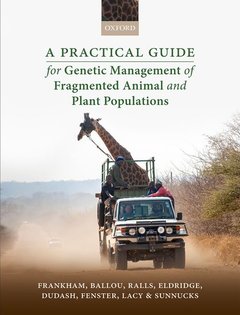Emeritus Professor Richard Frankham is one of the leading international figures in conservation genetics, having been a pioneering researcher in the discipline and senior author on the first textbooks in the field. In 2005 he was awarded a DSc by Macquarie University (in Sydney, Australia), based upon his published work (now > 170 publications). Throughout his career he has worked on the genetic impacts of small population sizes in the contexts of conservation and evolutionary genetics and animal breeding. In 2017 he was awarded the MJD White Medal of the Genetics Society of AustralAsia for his career contributions to conservation and evolutionary genetics. His background is in agriculture (BScAgr [Hons 1] and PhD from the University of Sydney, Australia). He worked for Agriculture Canada (1967-69), followed by a postdoctoral fellowship at the University of Chicago (1969-71), before spending 31 years at Macquarie University. He officially retired in 2002, but continues to work full-time. Jonathan Ballou is a Research Scientist Emeritus at the Smithsonian Institution's Smithsonian Conservation Biology Institute in Washington, DC and from 2003-2006 was Head of its Department of Conservation Biology. His research has focused on the genetic and demographic problems confronted by small populations, especially of threatened species. He is recognized as a leader in developing the theoretical basis for the genetic management of small populations and in developing population management tools (software, applied theory) that are widely and internationally used by wildlife and zoo managers. Jon received his bachelor's degree in Animal Behavior from the University of Virginia in 1977, his masters in statistics at George Washington University in 1985 and his PhD in Population Genetics from the University of Maryland in 1995. Katherine Ralls is interested in the behavioural ecology and conservation of mammals. She studied biology at Stanford and received her PhD from Harvard. An

